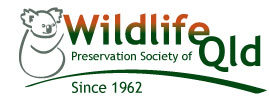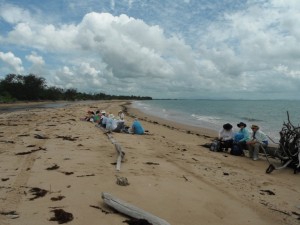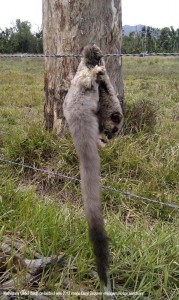WHAT’S COMING UP?
BAT NIGHT IS TONIGHT FRIDAY 10th 6-8pm: This event is one of at least a hundred bat nights being held around Australia and New Zealand. In Townsville it is a collaboration between the Australasian Bat Society, NQ Dry Tropics, NQ Wildlife Care, Wildlife Queensland and the North Queensland Conservation Council – and hopefully lots of bats, big and small!!
APRIL FIELD TRIP SUNDAY 19th: This month will provide a chance to explore the western (or, to be precise, the south-western) slopes of Castle Hill and a couple of the lesser-used tracks. With temperatures still pretending that it is summer, we will make a much earlier start, aiming to be on the track by 7am. Breakfast at a Strand cafe could be a nice way to finish for those with time to spare.
AGM SUNDAY 3rd MAY: Branch members have already been notified of our AGM, scheduled for Sunday 3rd May, 9am at 10 Gowrie Street, Mundingburra. If you are unable to come we would appreciate your proxy – the form was attached to the AGM notice. We are grateful to members Jackie and Ken for offering their under-the-deck space as a venue. If you can put a chair in the boot of your car this will ensure no-one has to sit on the floor!
WHATS BEEN HAPPENING?
OUR MARCH FIELD TRIP: You can read the report of our Crystal Creek and beach field trip, Keeping it clean, here. We had some very willing volunteers and left the area a lot cleaner than we found it. Even without the clean-up effort, it was worthwhile reminding ourselves how precious these stretches of minimally developed coastline are.
MEETING THE MINISTER: The last Sunday in March brought Community Cabinet to Townsville, providing the opportunity to speak with Steven Miles, the new Minister for Environment and Heritage Protection, and for National Parks and the GBR. Beth, Denise and myself, from the Branch, were joined by flying-fox advocate Dominique Thiriet, from NQ Wildlife Care, to present the case for more humane and effective flying-fox management and stronger mahogany glider conservation measures. The Minister was accompanied by his director-general, Jon Black, his chief of staff, and the regional manager for DEHP, Scott Sullivan.
Despite the short time available it was a useful exercise that allowed us to meet the faces behind the titles, and for them to be aware of who we are and that we really care. We had to bear in mind that the new administration’s precarious hold on government will make sweeping or controversial changes difficult. However we were able to point out ways that existing laws and guidelines could be used and enforced to achieve positive results without unduly upsetting the cross-benches. We had spent the previous week preparing documents to leave with the minister summarising our concerns and recommendations, with additional photographs and maps relating to the mahogany glider and threats to its habitat on our own doorstep. This is something we will continue to pursue.
PANAMA DISEASE – threatening farmers and wildlife? With two farms in the north now in lock-down after outbreaks of Panama disease one can well imagine the fear of every banana-grower that theirs might be the next crop attacked by this fungus. The consequences are devastating. Sadly, last week came worrying news that this fear was causing some growers to turn to that old enemy of wildlife – barbed wire – in order to block access to their properties by anything (human, animal or mechanical) that might spread the infection to their land.
Entanglement in barbed wire is a horrible way to die, and even those animals rescued alive often do not recover fully. Barbed wire can trap and kill many wildlife species including flying foxes, mahogany and other gliders, cassowaries, owls, frogmouths, brolgas and sarus cranes. It would be tragic if our wildlife were to become collateral damage in the fight to control panama disease. Fortunately efforts are being made by both professionals and volunteers (including from the Cassowary Coast branch of WQ) to help and advise farmers in ways to protect their livelihood while keeping wildlife as safe as possible.
Thank you for reading and please feel free to pass this link on to others who might be interested. Please also email us if you have any questions about our activities or the issues we raise.






